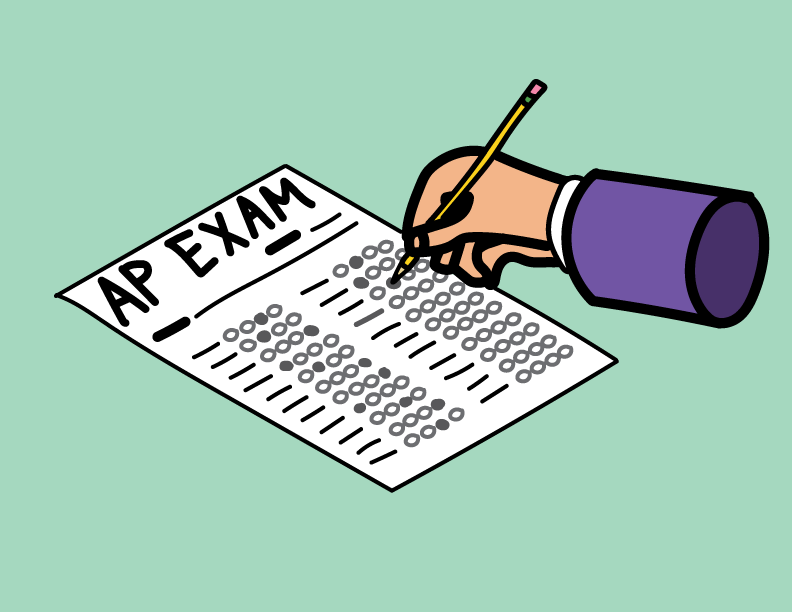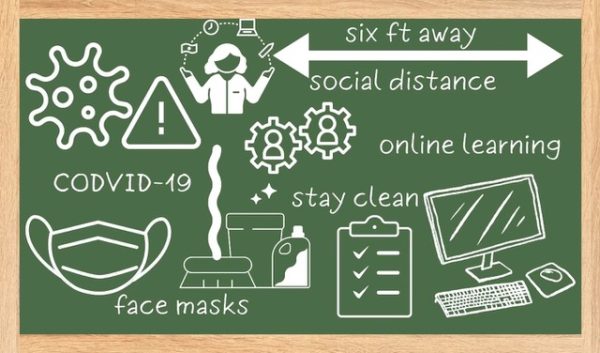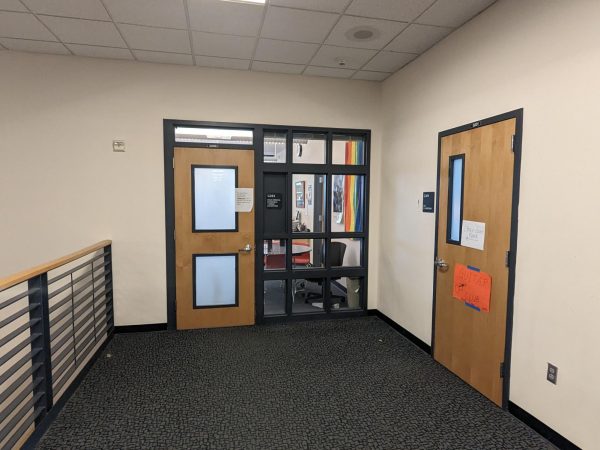The downsides of Advanced Placement exams
Advanced Placement (AP) exams are administered every May, allowing students to showcase their knowledge from AP courses.
As May begins, a dreadful event keeps some high school students on edge: Advanced Placement (AP) exams. This year’s testing session lasts throughout May 1—12. AP classes are created by the College Board, a non-profit organization that creates opportunities for high school students to prepare for college and expand to levels of higher education.
The variety of AP courses available depend on each school. AP Biology, AP Chemistry, AP Computer Science, and AP U.S. History are a few of the classes offered in the West Linn-Wilsonville District (WLWV). The expansive range of AP classes available is a benefit for students to indulge in their interests. However, there are still critical issues with the College Board’s AP testing system that should be addressed.
AP exams are expensive. With the College Board setting the base of the 2023 exam fees at $97 per exam for schools in the U.S., the final fee for public schools depends on the state. For a single packet of paper, $97 is neither cheap or accessible for all students. This can be an even bigger issue for students taking more than one AP course, as they would have to double or triple their fees.
The College Board is overcharging its customers and taking advantage of the presented systemic inequality. Not everyone can afford to take a test at a price of $97 for one exam. The College Board is supposed to help create opportunities for students, but how can this be done when prices for exams are not equally accessible to all?
On the AP test, a score of three out of five points is considered to be passing and eligible for a college credit. Using the credit received from the AP exam, students can shorten the number of courses they’d have to take at college.
Unfortunately, this does not mean scores of three out of five points are able to gain credit at the collegiate level. A majority of top colleges like New York University, Northwestern University, and Ivy League colleges only give credit for exams that have received a minimum score of four or even a five.
This is a high standard to achieve, and for students to uphold this standard can be a strong demand. Students that do not receive a four or above on AP tests that hope to go to top colleges have to retake these courses in their college years, essentially getting rid of their advantage. This makes it seem like all the time, classwork, and money spent was for nothing.
Additionally, the standardized testing system utilized by the College Board is not the best way to measure a student’s understanding of a class. AP exams are created to understand how well students have absorbed and can express the content they have learned over the year. All students have different ways of showcasing their work, and so the application of this learning into a multiple choice test or a written essay exam is not the most effective form of testing.
Tests can be a major contributor to some students’ stress. This is no exception with the AP exams. With the factor of getting college credits, some students can overwork themselves and build a naturally competitive environment in a classroom setting. Advanced classes are often viewed as a mark of a student’s academic potential, and a way to compete with other students.
The tension this creates can diminish the mental health of students. The workloads for AP classes are already time consuming and rigorous, and adding the factor of competition can create a negative relationship with school and surrounding peers.
A hefty workload in an advanced class is expected, however, students may not have enough time in advance to prepare for the AP exams. Courses with dense and long units, like AP U.S. History, can spend multiple weeks on a single unit.
With this curriculum, the timing of the units learned results in students barely having enough preparation for the final AP exam at the end of the school year. This leads to students that take the AP test prioritizing memorization, rather than in-depth studying and learning. This is a negative outcome because this results in students not gaining a better understanding of the class.
The College Board organization is supposed to provide students with the chance to choose courses that satisfy their individual interests and exemplify their understanding of the course. But with the inequitable access of AP testing to students, overcharging the final exams, and negative mental tolls and foundation of the AP system, some may wonder if AP testing is really worth it.
Your donation will support the student journalists of West Linn High School. Your contribution will allow us to continue to produce quality content by purchasing equipment, software, and continuing to host our website on School Newspapers Online (SNO).

Rachel Han, junior, is the Print Editor-in-Chief for wlhsNOW. She has found a passion in writing about opinion pieces and designing graphics. Aside from...





























































![At the bottom of the third inning, the Lions are still scoreless. Rowe stands at home plate, preparing to bat, while Vandenbrink stands off to the side as the next batter up. Despite having the bases loaded, the team was unable to score any runs. “It’s just the beginning of the season. We’re just going to be playing out best by June, [and] that’s where champions are,” Rowe said.](https://wlhsnow.com/wp-content/uploads/2024/03/IMG_3077-1200x900.jpg)







































![All smiles. The group poses for a photo with last year’s book, “This is Our House,” along with their award for third Best in Show. Meikle, who was an Editor-in-Chief for the yearbook last year as well, holds both and stands at the center of the group. “That was an amazing feeling, going and grabbing the third place award,” Meikle said. “All of it paid off. I cried so much over that book, being able to receive [the award] was one of the highlights of my high school career, it was like the coolest thing ever.”](https://wlhsnow.com/wp-content/uploads/2024/11/8bookpose_philly-1200x800.jpg)






















